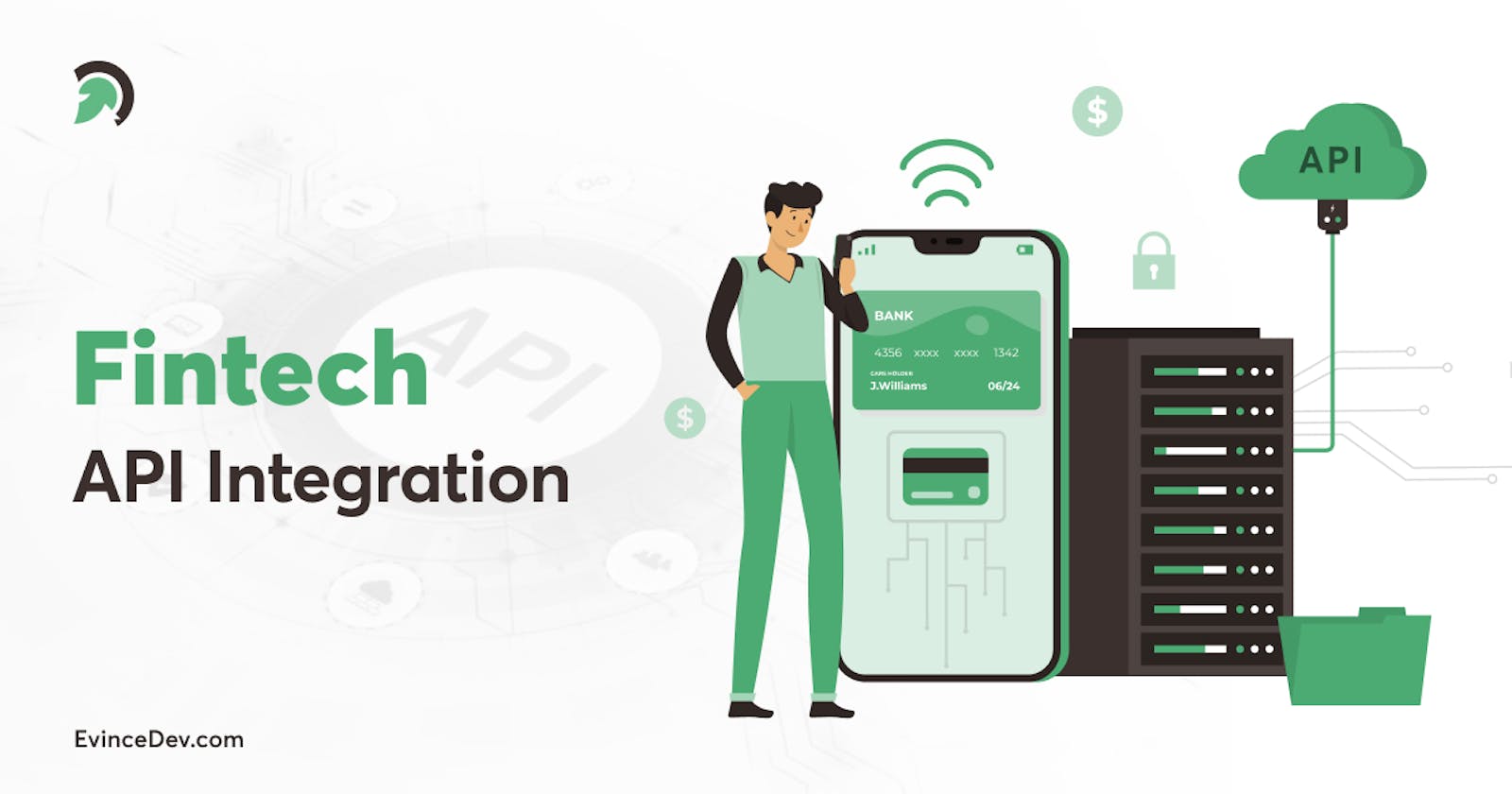Unlocking the Future: How Financial API Integration Supercharges Fintech Innovation
Discover how financial API integration is fueling fintech innovation and shaping the future of finance.
The financial world is undergoing a transformative revolution powered by the fusion of finance and technology, often referred to as fintech. This dynamic force has not only reshaped how financial services are delivered but has also revolutionized traditional banking practices. In this comprehensive guide, we’ll delve into the intricate realm of financial API integration, exploring how it fuels the fintech ecosystem and empowers businesses to deliver innovative financial solutions. It encompasses many services, including mobile banking, digital payments, peer-to-peer lending, robo-advisors, and blockchain technology.
Streamlining Financial Operations
Traditional banking operations often involve labyrinthine processes, leading to inefficiencies and high overheads. However, fintech API development has transformed this paradigm. By automating and digitizing complex procedures, FinTech solutions deliver faster transactions, reduced paperwork, and lower operational costs. This not only benefits financial institutions but also translates into cost savings for consumers.
Empowering the Digital Financial Experience
The rise of fintech has brought about a remarkable transformation in how people interact with their finances. Mobile banking applications and digital wallets have made it effortless for individuals to access and control their accounts anytime, anywhere. The ease of transferring funds, making payments, and monitoring transactions has redefined the customer experience, making it seamless and user-friendly. With just a few taps on their smartphones, individuals can send money, pay bills, and manage their finances with unparalleled convenience.
This newfound convenience has significantly enhanced the accessibility and efficiency of financial services, making it easier for everyone to participate in economic activities and contribute to the economy’s growth.
Key Figures Depicting Fintech Trends & API Usage
By 2023, the global fintech market is projected to reach a staggering $305.7 billion.
In the United States, 60% of credit unions and 49% of banks believe that fintech partnerships are crucial.
The US boasts the highest number of fintech companies, with 22,290, followed closely by China with 8,870.
Financial API Integration & Its Importance
Financial API integration involves Application Programming Interfaces (APIs) into financial technology (Fintech) applications. APIs allow various software systems to communicate and share data, enabling seamless integration of financial services into Fintech applications.
The importance of financial API integration must be considered for Fintech applications. By integrating APIs, Fintech companies can access various financial services, such as payment processing, account aggregation, and identity verification, without building these services from scratch. It saves time and resources and ensures that Fintech applications can offer their users robust and secure financial services. This integration also enhances the user experience by providing real-time access to financial data and services.
Users can conveniently manage their finances, make payments, and access personalized financial advice, all within a single Fintech application. This seamless integration of financial services increases user engagement and satisfaction and helps users stay up-to-date with the latest financial innovations.
By integrating APIs from financial institutions and service providers, Fintech companies can leverage new technologies and services as they become available. It ensures that Fintech applications remain competitive in the rapidly evolving financial industry.
How Does A Financial API Integration Work
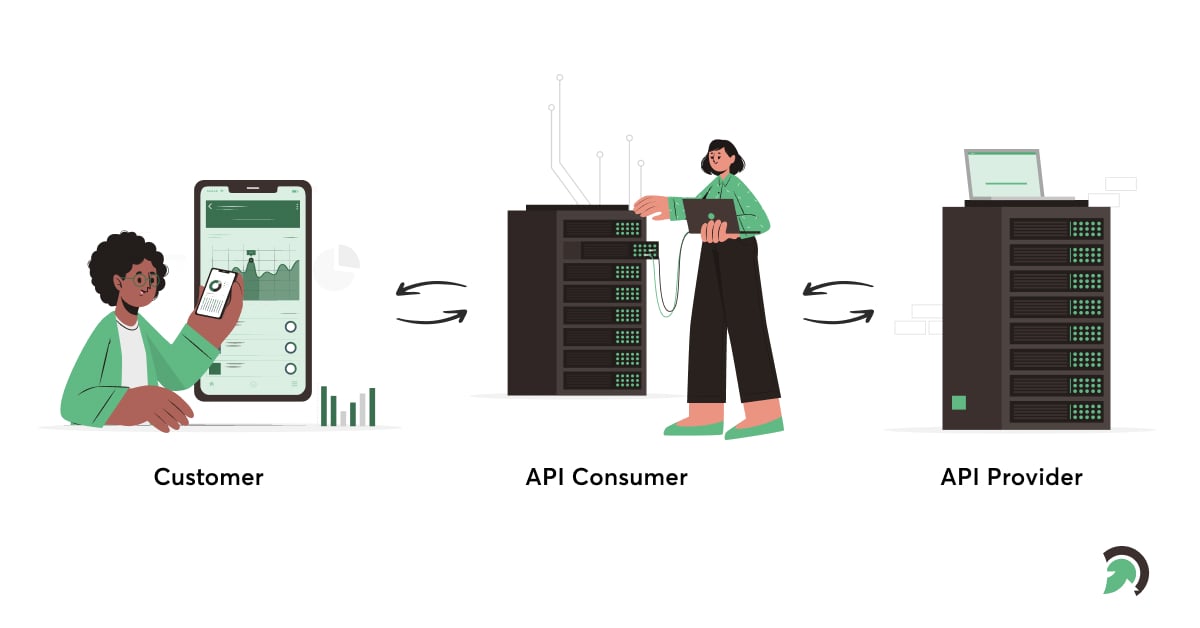
Financial API integration connects a financial application programming interface (API) with other software systems or platforms. This integration allows seamless communication and data exchange between financial systems, enhancing efficiency and streamlining operations.
Let’s consider a simplified example to understand how financial API integration works. Suppose you have a mobile banking application that needs to retrieve a user’s account balance from a core banking system. Instead of manually accessing the core banking system and retrieving the information, the mobile banking application can utilize a financial API to fetch the account balance directly.
The steps of the integration process are as follows:
Identification and Selection of The Appropriate Financial API
Various financial APIs are available, each designed to perform specific functions. It is crucial to identify the API that aligns with your integration requirements.
Authentication and Authorization
Once the API is selected, and the integration begins with establishing secure authentication and authorization protocols. It ensures that only authorized users or systems can access and exchange data.
Data Retrieval and Exchange
With the authentication process complete, the financial API can retrieve the required data from the connected financial system. This data can include account balances, transaction history, customer information, and more. The API then transfers this data securely to the requesting system.
Data Processing and Utilization
Once the data is received, the requesting system can process and utilize it according to its specific needs. For example, the mobile banking application can display the retrieved account balance to the user in real time.
Error handling and Exception Management
Robust financial API integration includes mechanisms to handle errors and exceptions that may occur during the data retrieval or exchange process. It ensures the integrity and reliability of the integrated systems.
5 Reasons for Third-Party APIs to Consider for Fintech Apps
In the realm of financial technology, incorporating third-party APIs into your application can bring about numerous advantages. These Application Programming Interfaces (APIs) help integrate external services, data, and functionalities into their applications. By leveraging third-party APIs, fintech applications can enhance their capabilities, streamline processes, and provide a more comprehensive user experience.
We will explore five compelling reasons why integrating third-party APIs is crucial for the success of your FinTech application.
Expanded Functionality and Services
Integrating third-party APIs allows your fintech application access to various additional functionalities and services. Instead of building everything from scratch, you can leverage existing APIs to incorporate features such as payment gateways, identity verification, credit scoring, and more. It saves financial software development time and effort and offers users a more comprehensive and competitive product.
2. Improved Security and Compliance

In the fintech industry, security and compliance are of utmost importance. Third-party APIs often have built-in security measures and compliance protocols, ensuring your application meets industry standards and regulations. These APIs can offload the burden of security and compliance to trusted providers, reducing the risk of data breaches and legal complications.
3. Enhanced Data Accuracy and Insights
Integrating third-party APIs enables your fintech application to access vast data from external sources. This data can be utilized to enhance the accuracy of your services, such as real-time market data for investment applications or credit bureau data for loan applications. By leveraging these APIs, you can provide your users with up-to-date information and valuable insights, improving the overall user experience and decision-making process.
4. Real-time Data and Analytics
Access to real-time data and analytics is crucial for making informed decisions in the financial industry. Third-party APIs can provide your fintech application with up-to-date market data. This real-time data and analytics can help your fintech application stay competitive by providing accurate and timely information on market trends, customer behavior, and financial performance.
5. Accelerated Development Process
Integrating third-party APIs can speed up the development process of your fintech application. Instead of building complex functionalities from scratch, you can leverage pre-built APIs to incorporate desired features into your applications quickly. It saves time and reduces the complexity and potential errors in developing these functionalities in-house.
Types of Financial API Integrations
By leveraging diverse Fintech API integrations, businesses can enhance their services, improve customer experiences, and streamline financial processes. There are some significant financial API integrations, such as –
Account Verification APIs
These enable businesses to verify the authenticity and accuracy of customer account information, ensuring secure transactions and preventing fraud.
Stock Trading APIs

These provide real-time access to stock market data, allowing the creation of applications that facilitate stock trading, portfolio management, and market analysis.
Investment APIs
Investment APIs integrate investment platforms, enabling users to manage their portfolios, track performance, and make informed investment decisions.
Payment Processing APIs
These APIs streamline the payment process by allowing businesses to securely accept and process online payments, ensuring smooth transactions and enhancing customer experience.
Banking Integration APIs
Banking integration APIs enable seamless integration between banking systems and third-party applications, allowing users to access account information, transfer funds, and perform various banking transactions.
Insurance APIs
Insurance APIs facilitate integrating insurance services into applications, enabling users to obtain quotes, purchase policies, and manage their insurance coverage conveniently.
Personal Finance Management APIs
These enable users to track their finances, manage budgets, and analyze spending habits, providing valuable insights for better financial planning and decision-making.
Lending APIs
Lending APIs enable businesses to integrate lending services into their applications, allowing users to apply for loans, receive loan offers, and manage loan repayments efficiently.
Future of APIs in Fintech
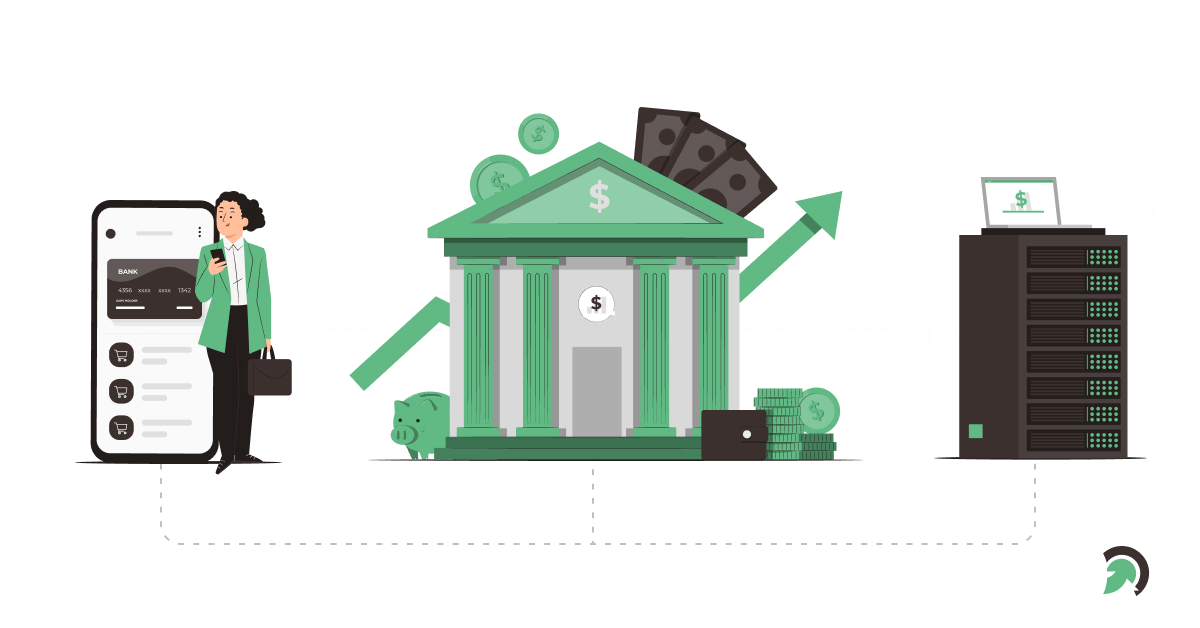
The future of Application Programming Interfaces (APIs) in the financial technology (Fintech) industry holds immense potential. APIs have become a crucial component in the digital transformation of financial services, enabling seamless integration and communication between various systems and platforms.
APIs serve as the bridge that connects different software applications, allowing them to interact and share data in a standardized manner. It facilitates the secure and efficient exchange of financial information between banks, payment processors, and other financial institutions. This seamless connectivity enables the development of innovative products and services that enhance the overall customer experience.
Looking ahead, the future of APIs in Fintech holds even more tremendous promise. As technology advances, APIs will become more sophisticated, enabling real-time data. These advancements will revolutionize how financial institutions interact with customers, providing personalized and seamless experiences.
From Idea to Reality: The Steps We Took to Deliver Fintech Solution
At EvinceDev, we have successfully added a Fintech project to our portfolio by implementing a proof of concept (POC) for our UK-based client through Financial API integration. It has completely changed the trading experience on the IG trading platform using ‘trading view’ alerts and automation features.
The following are the main steps we took in this process:
Web Platform Development
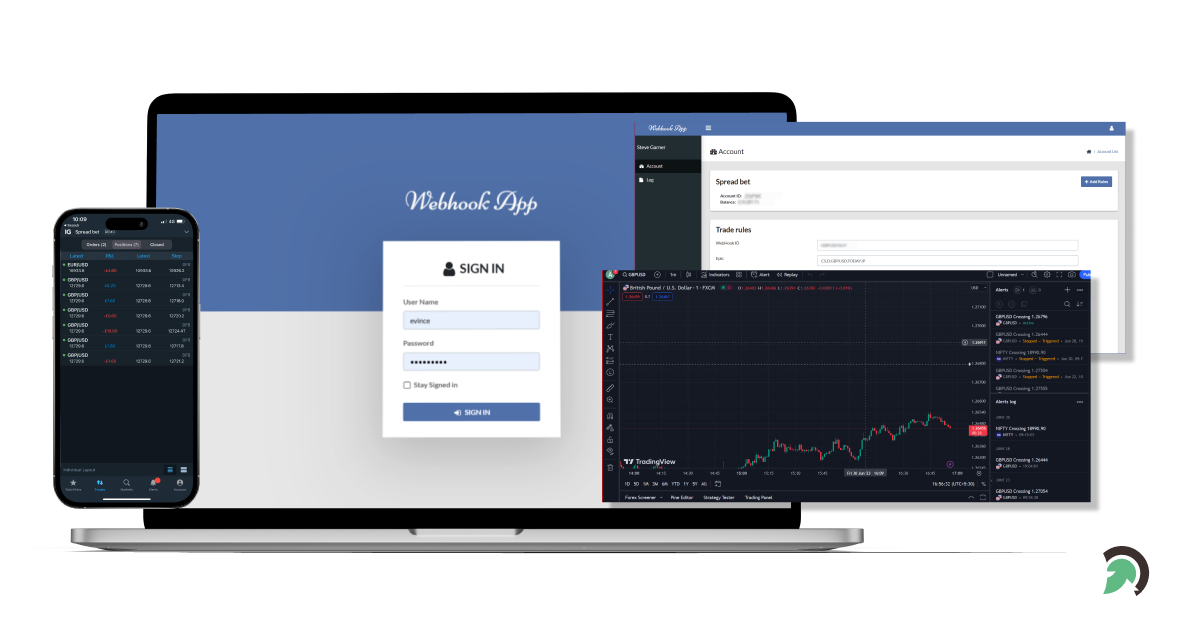
Our objective was to create an innovative web platform that serves as a central hub for generating unique webhooks for IG.com accounts. This platform is crucial in seamlessly integrating IG.com with TradingView, ensuring a smooth and efficient user experience.
Login Module
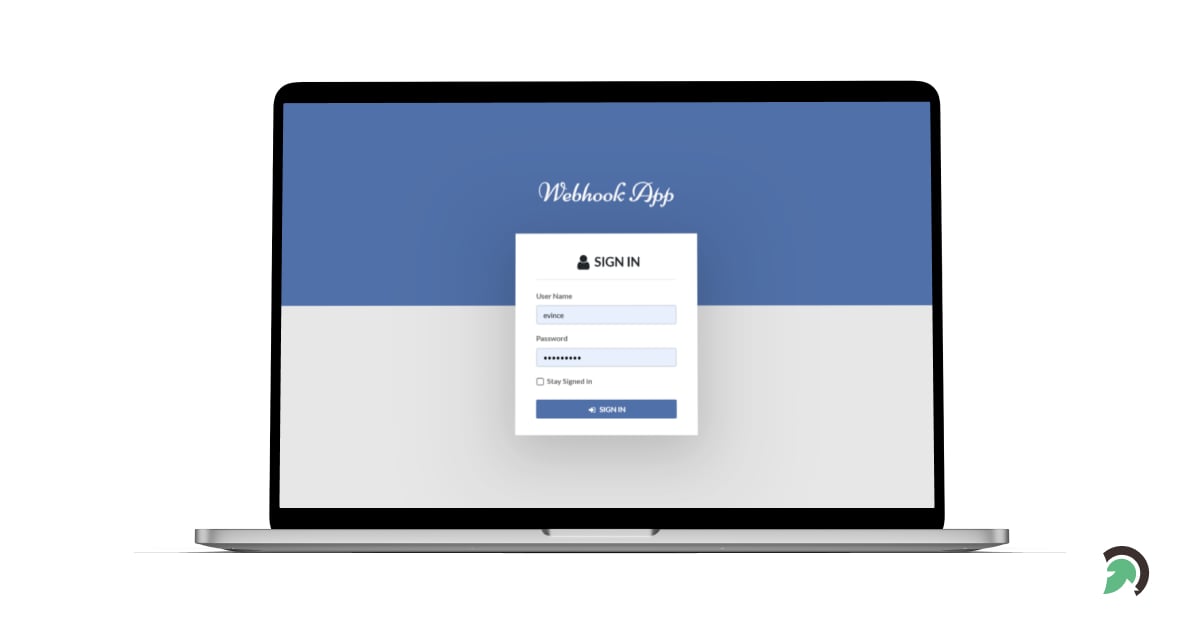
Users can easily log in to the system by entering their username, password, and Application Key. The platform then sends a request to ig.com (https://demo-api.ig.com/gateway/deal/session) using the provided credentials. If the request is successful, an authentication token is stored in cookies for future authentication. In the event of a failure, the system displays a message indicating invalid credentials to the user.
Webhook Setup in Trading View
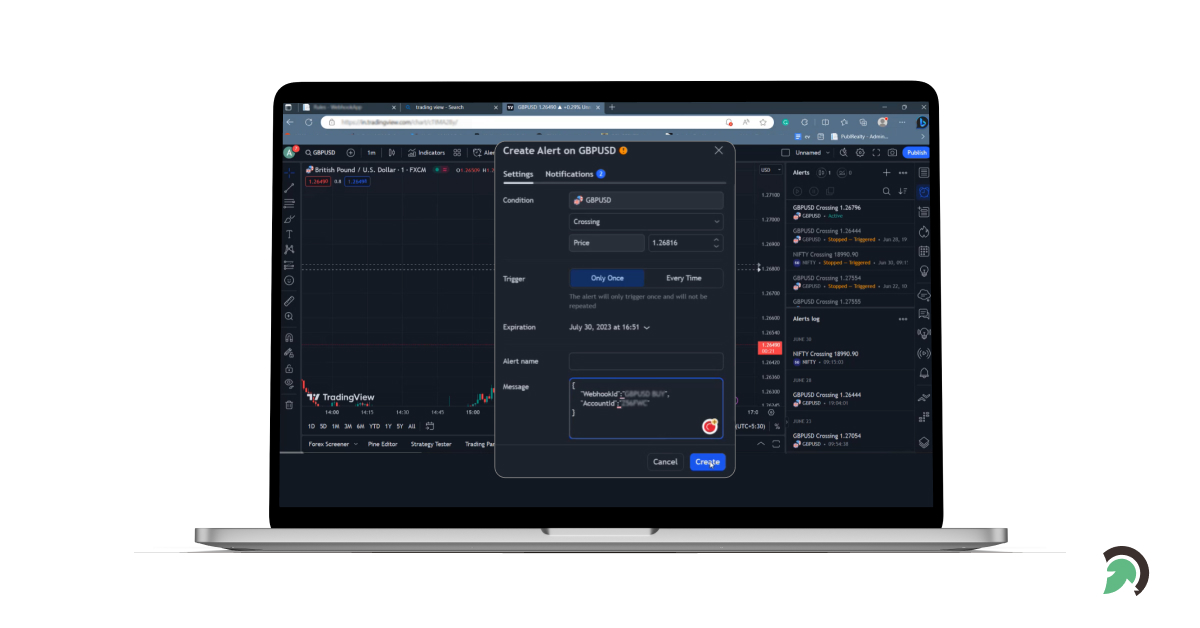
After a user connects their IG account on the platform, we provide a user interface to display all the IG Account lists associated with their account. For each account, the platform creates a unique webhook URL. These webhooks are configured in TradingView to trigger when specific conditions are met, such as a particular market event or a technical indicator reaching a specific value.
Notification Processing
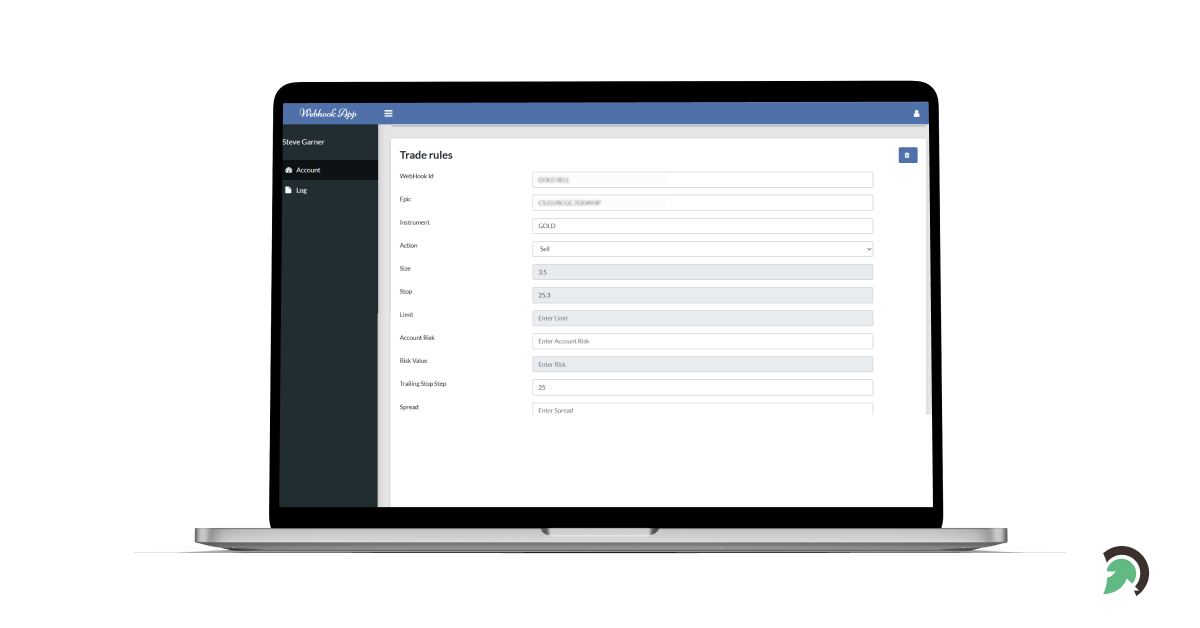
The endpoint needs to be manually set up in the TradingView alert rule to enable the webhook functionality. Once the webhook is triggered in TradingView, the platform receives a notification on the provided webhook URL. We perform necessary data validation to ensure the integrity and accuracy of the received notification.
Create Order API Integration
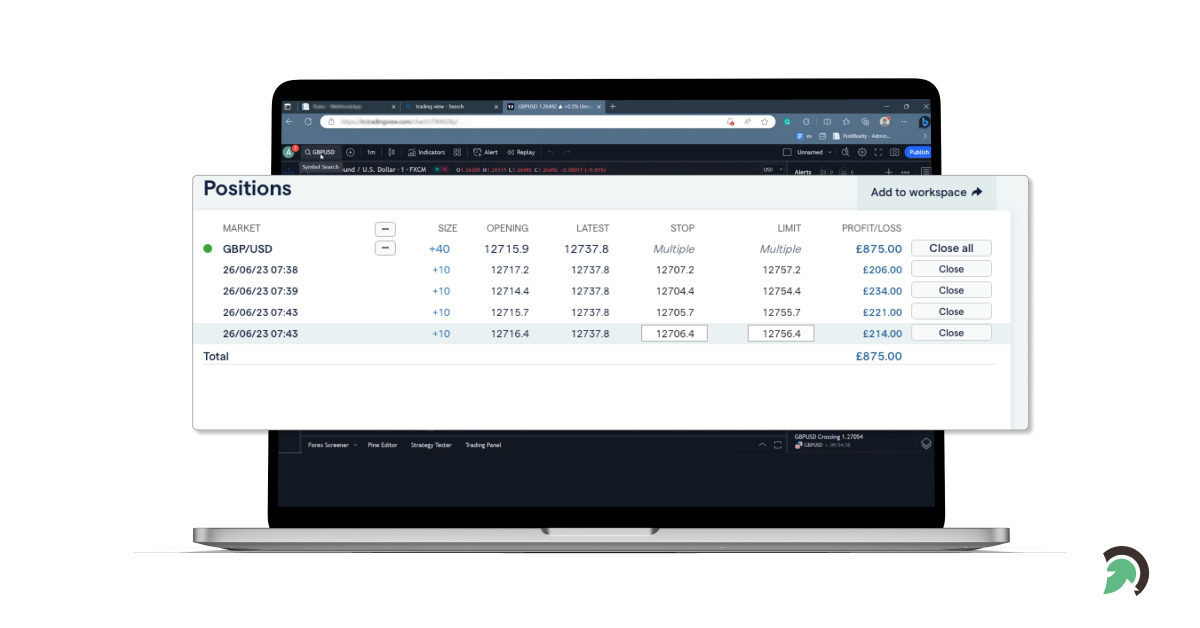
Once the notification is processed, the platform utilizes the IG.com API to place an order on the user’s IG.com account. The order is created based on the information received in the notification, including Epic Order Level, order type, and other relevant parameters. To ensure smooth operation, we implement error handling and a logger to track any issues encountered during the order placement.
That’s how we have become a game-changer in the financial industry by empowering clients to automate share market trading. This innovative solution saves valuable time and eliminates human errors, paving the way for potentially better trading outcomes.
Conclusion
Financial API integration revolutionizes banking and financial services by enabling seamless connectivity between financial institutions and third-party applications or platforms. It is undoubtedly transforming how we interact with financial institutions and manage our finances.
We can help integrate third-party APIs successfully at Evince Development as we specialize in custom API development tailored for the fintech industry. By partnering with us, you can unlock the full potential of third-party APIs and drive innovation and growth in your fintech business. Contact us today to explore how our third party API integration services can benefit your organization.
Originally published at Financial API Integration.
